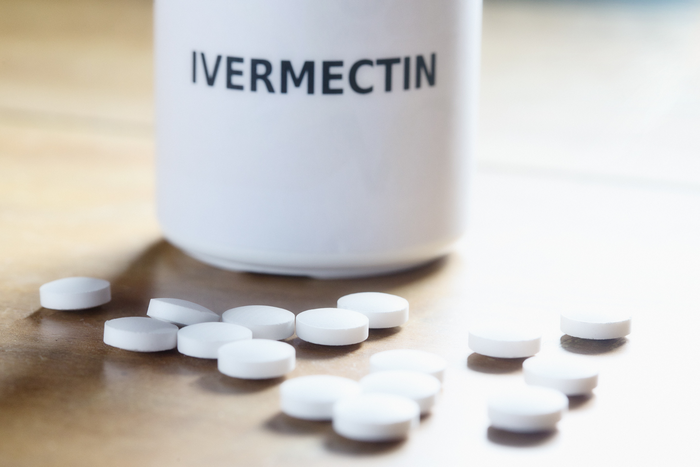Introduction
Ivermectin 6 mg tablets is a medicine that has an array of antiparasitic properties and is gaining attention due to its potential for the treatment of different conditions such as parasitic infections, as well as an unpopular method of treating viral illnesses such as COVID-19. This article is designed to give an extensive overview of Ivermectin, with a focus on its security, usage of the medication, dosage guidelines, and possible negative side effects.
Ivermectin: A Review
Buy Iverheal 12 mg Ivermectin Online was first discovered in the late 1970s and has since been a key tool in the combat against tropical illnesses that are neglected including river blindness, and lymphatic filariasis. It is part of a class of drugs called macrocyclic lactones. It works by blocking the parasites’ nervous system and causing their paralysis and ultimately death.
Accepted Usages
Buy Iverheal 12 mg Ivermectin Online is FDA-approved to be used in the treatment of certain parasite infections in humans. The most frequent indications are the condition known as onchocerciasis (river blindness) strongyloidiasis (a kind of roundworm disease) and helminthiasis caused by the intestinal threadworm. It is also widely utilized in the field of veterinary medicine to treat a variety of animal parasites.
A Controversial Use in COVID-19
In the context of the COVID-19 pandemic, Ivermectin received a lot of media attention and controversy due to assertions that it is effective in treating and preventing the disease. It is important to recognize that scientists are split on the efficacy of Ivermectin’s use in COVID-19 treatment and its use in this regard is not widely accepted by health officials.
Dosage Recommendation
The dose of Ivermectin is different according to the condition being treated. In the case of onchocerciasis, a single oral dose is typically administered, whereas treatment for the condition of strongyloidiasis could require multiple doses. Doses for vet medicine are dependent on weight.
It is vital to stress that self-medication or taking Ivermectin in the absence of medical advice could cause adverse reactions. The dosage must decide by a licensed medical professional based on the person’s weight and medical history, as well as the health condition being addressed.
Possible Side Effects
While Ivermectin generally is well-tolerated it does have the possibility of adverse negative effects. Common adverse reactions include headaches nausea, dizziness, and diarrhea. These symptoms are usually short-lived and temporary.
In rare instances, particularly when the dosage is greater doses than the recommended dosage and dosages, more serious side effects can be experienced. They can result in allergies, skin rashes, and, in some cases neurological effects like seizures. The chance of experiencing adverse effects can increase when Ivermectin is misused or when it is used in conjunction with other medications that could cause adverse interactions.
Contradictory Evidence of Safety
Ivermectin’s safety has been the subject of debate, especially with its use in COVID-19. Certain studies show an acceptable safety profile when it is used in doses recommende by the FDA, while others point out the potential dangers in higher doses or long-term usage.
It is vital to differentiate between the proven safety of Ivermectin, in the approved doses to treat parasites and the uncertainty around the use of Ivermectin off-label, particularly regarding COVID-19 which is a field where research findings are in the process of developing.
Clinical Trials and Research
To better understand the extent of the safety and effectiveness of Ivermectin in various conditions, ongoing clinical trials and extensive research efforts are required. These studies are designed to determine the potential benefits of this drug as well as the optimal dosages and the risks associated with it and provide a basis for a logical medical decision-making process.
It is vital to stress that self-medication or taking Ivermectin in the absence of medical advice could cause adverse reactions. The dosage must decide by a licensed medical professional based on the person’s weight and medical history, as well as the health condition being addressed.
Conclusion
Ivermectin, when utilized within the guidelines that have a approve for its known indications, has demonstrated an excellent safety profile when treating parasite-related infections. However, the controversy surrounding its use for COVID-19-related conditions highlights the importance of evidence-based medicine as well as the necessity for properly designed clinical studies.
Like all medications, any decision to take Ivermectin must be taken by a qualified medical expert. The use of self-prescription or from sources that not regulated could cause adverse reactions and could compromise the safety of patients. The ongoing research will reveal the potential advantages and dangers of Ivermectin within various medical settings, resulting in an improved and more nuanced knowledge of this commonly used antiparasitic medication.
It is vital to differentiate between the proven safety of Ivermectin, in the approved doses to treat parasites and the uncertainty around the use of Ivermectin off-label, particularly regarding COVID-19 which is a field where research findings are in the process of developing.
